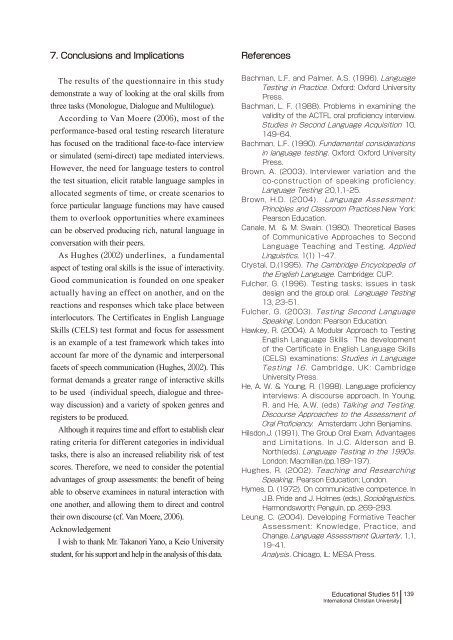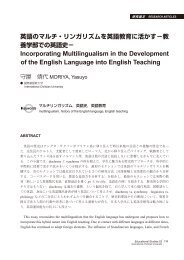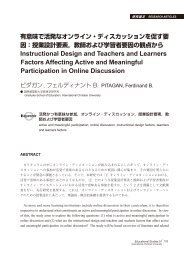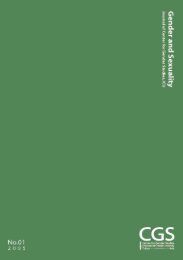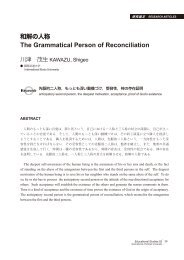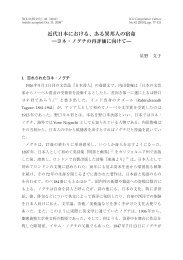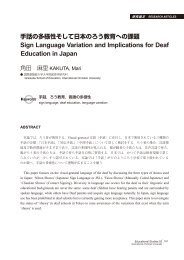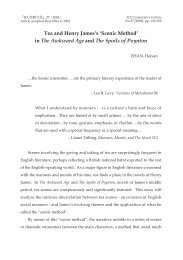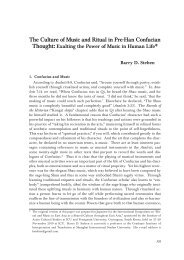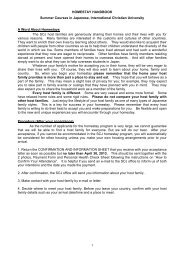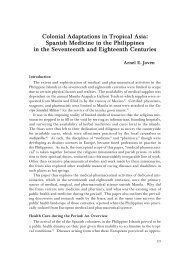Monologue, Dialogue and Multilogue - subsite
Monologue, Dialogue and Multilogue - subsite
Monologue, Dialogue and Multilogue - subsite
Create successful ePaper yourself
Turn your PDF publications into a flip-book with our unique Google optimized e-Paper software.
7. Conclusions <strong>and</strong> ImplicationsReferencesThe results of the questionnaire in this studydemonstrate a way of looking at the oral skills fromthree tasks (<strong>Monologue</strong>, <strong>Dialogue</strong> <strong>and</strong> <strong>Multilogue</strong>).According to Van Moere (), most of theperformance-based oral testing research literaturehas focused on the traditional face-to-face interviewor simulated (semi-direct) tape mediated interviews.However, the need for language testers to controlthe test situation, elicit ratable language samples inallocated segments of time, or create scenarios toforce particular language functions may have causedthem to overlook opportunities where examineescan be observed producing rich, natural language inconversation with their peers.As Hughes () underlines, a fundamentalaspect of testing oral skills is the issue of interactivity.Good communication is founded on one speakeractually having an effect on another, <strong>and</strong> on thereactions <strong>and</strong> responses which take place betweeninterlocutors. The Certificates in English LanguageSkills (CELS) test format <strong>and</strong> focus for assessmentis an example of a test framework which takes intoaccount far more of the dynamic <strong>and</strong> interpersonalfacets of speech communication (Hughes, ). Thisformat dem<strong>and</strong>s a greater range of interactive skillsto be used (individual speech, dialogue <strong>and</strong> threewaydiscussion) <strong>and</strong> a variety of spoken genres <strong>and</strong>registers to be produced.Although it requires time <strong>and</strong> effort to establish clearrating criteria for different categories in individualtasks, there is also an increased reliability risk of testscores. Therefore, we need to consider the potentialadvantages of group assessments: the benefit of beingable to observe examinees in natural interaction withone another, <strong>and</strong> allowing them to direct <strong>and</strong> controltheir own discourse (cf. Van Moere, ).AcknowledgementI wish to thank Mr. Takanori Yano, a Keio Universitystudent, for his support <strong>and</strong> help in the analysis of this data. Educational Studies 51International Christian University139


